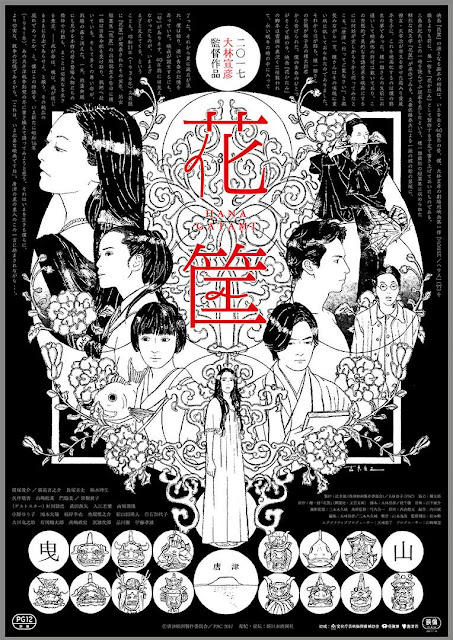Hanagatami (2017) ***1/2
Though overall less whacky, in some ways Nobuhiko Obayashi's Hanagatami (2017) is just as bizarre and challenging as his most well-known film, his gonzo feature film debut, House (1977). Admittedly, those are the only two films by the director that I have seen, but that is largely down to the availability of his work in HD. A handful of other films by Obayashi are available on Blu-ray in Japan, but only the two aforementioned films in the States/UK.
Hanagatami, based on Kazuo Dan's 1937 novel, tells the story of teens (many awkwardly portrayed by older actors) living in the island city of Karatsu just prior to and during World War II. This touching but eccentric anti-war film features many Obayashi trademarks, such as weirdly go-lucky performances, high melodrama, and intentionally cheap-looking (yet oddly fascinating) effects and garishly lit sets. Though it doesn't have the same handmade quality that House does in that regard, there is a definite unique visual appeal that can't be denied.
Hanagatami, based on Kazuo Dan's 1937 novel, tells the story of teens (many awkwardly portrayed by older actors) living in the island city of Karatsu just prior to and during World War II. This touching but eccentric anti-war film features many Obayashi trademarks, such as weirdly go-lucky performances, high melodrama, and intentionally cheap-looking (yet oddly fascinating) effects and garishly lit sets. Though it doesn't have the same handmade quality that House does in that regard, there is a definite unique visual appeal that can't be denied.
Obayashi had originally conceived Hanagatami in the 1970s and it took 40 years for him to finally realize. While the film is quite long (close to 3 hours) and has a vignette-like approach to the whole affair, it's never boring and leaves the viewer pondering its message and the many entrancing images. It's a particularly poignant experience knowing that just before production the director was diagnosed with stage-four cancer and only given a few months to live. He far outlived that diagnosis though, making one more film released in 2019 (The Labyrinth Of Cinema) and passing away in April of this year. R.I.P.


Comments
Post a Comment